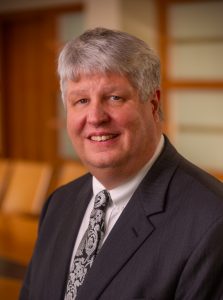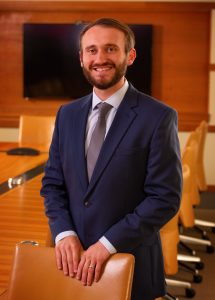The Wisconsin Fair Dealership Law Enters Its 50th Year: Situated in Wisconsin
How the Wisconsin Fair Dealership Law Affords Protections to Businesses Based Out of State
In an earlier post, we discussed when the relationship between two parties qualifies as a protected dealership under the Wisconsin Fair Dealership Law and how the statute may apply to an eclectic mix of commercial arrangements. For a WFDL-protected dealership to exist, the purported dealer must demonstrate that its dealership is “situated in” the state. Wis. Stat. § 135.02(2). The statute offers no definition or test for when a dealership is situated in Wisconsin. While it is fairly simple to ascertain where a dealer is based, the determination of where a dealership is situated—and when the dealer can demonstrate that the relationship has a meaningful connection to Wisconsin—is more complex.
The Wisconsin Fair Dealership Law was developed and enacted to protect businesses operating within Wisconsin and provide them rights and remedies in addition to those existing by contract or common law, but the statute does not limit its reach to just Wisconsin-based companies. Soon after the WFDL’s enactment, dealers with minimal connection to the state were afforded WFDL protection by non-Wisconsin jurisdictions because, in part, their contracts provided that Wisconsin law would apply to their dealings. In 1977, the Legislature amended the WFDL to ensure that only dealerships “situated in” the state would be able to claim protection under the statute. As Judge Randa would later note, whether a dealership was situated in Wisconsin could not turn on a “simple trick of a Wisconsin choice-of-law provision and a single sale to the State” (for more on the interplay between choice-of-law provisions and the WFDL, check out last month’s post on contracting around the Wisconsin Fair Dealership Law).
In the decades following the 1977 amendments, there was little in the way of guidance for when a dealership met the ambiguous “situated in” standard. In Baldewein Co. v. Tri-Clover, Inc., 2000 WI 20, 233 Wis. 2d 57, 606 N.W.2d 145, the Wisconsin Supreme Court provided a framework for parties to consider when addressing this question. There, the Supreme Court adapted the Ziegler test (see our April post for a refresher on the Ziegler test’s origins and uses), to expound nine non-exclusive factors for courts to consider when assessing whether a dealership is situated in Wisconsin:
(1) percent of total sales in Wisconsin (and/or percent of total revenue or profits derived from Wisconsin);
(2) how long the parties have dealt with each other in Wisconsin;
(3) the extent and nature of the obligations imposed on the dealer regarding operations in Wisconsin;
(4) the extent and nature of the grant of territory in this state;
(5) the extent and nature of the use of the grantor’s proprietary marks in this state;
(6) the extent and nature of the dealer’s financial investment in inventory, facilities, and good will of the dealership in this state;
(7) the personnel devoted to the Wisconsin market;
(8) the level of advertising and/or promotional expenditures in Wisconsin; and
(9) the extent and nature of any supplementary services provided in Wisconsin.
Id., ¶30.
At bottom, this test was meant to focus on the “nature and extent of the dealership’s development of, investment in and reliance upon the Wisconsin market.” Id. Thus, where an out-of-state dealer demonstrates that it is actively targeting or derives a meaningful amount of business from Wisconsin, it may be able to claim protection for its dealership under the Wisconsin Fair Dealership Law, despite not being a licensed Wisconsin corporation. As it plays out for multi-state dealers, this test has been on balance with Wisconsin state courts’ approach to, and less exacting than the federal courts’ approach to, the community-of-interest test.
The Baldewein test extends the reach of the Wisconsin Fair Dealership Law, protecting dealers that operate within the Wisconsin marketplace even though they may not be headquartered within the state or registered with the Department of Financial Institutions. That said, as with the community-of-interest test, whether a dealership is situated in Wisconsin is hardly straightforward. Stafford Rosenbaum’s Dealership and Franchise team regularly advises multi-state distributors and grantors assess whether their relationships are situated in the state for WFDL purposes and are experienced litigating issues stemming from the test.
Stafford Rosenbaum LLP is a full-service law firm with two convenient office locations in Madison and Milwaukee, Wisconsin. Over 140 years of dedication to businesses, governments, nonprofits, and individuals has proven that effective client communication continues to be the heart of our practice.





